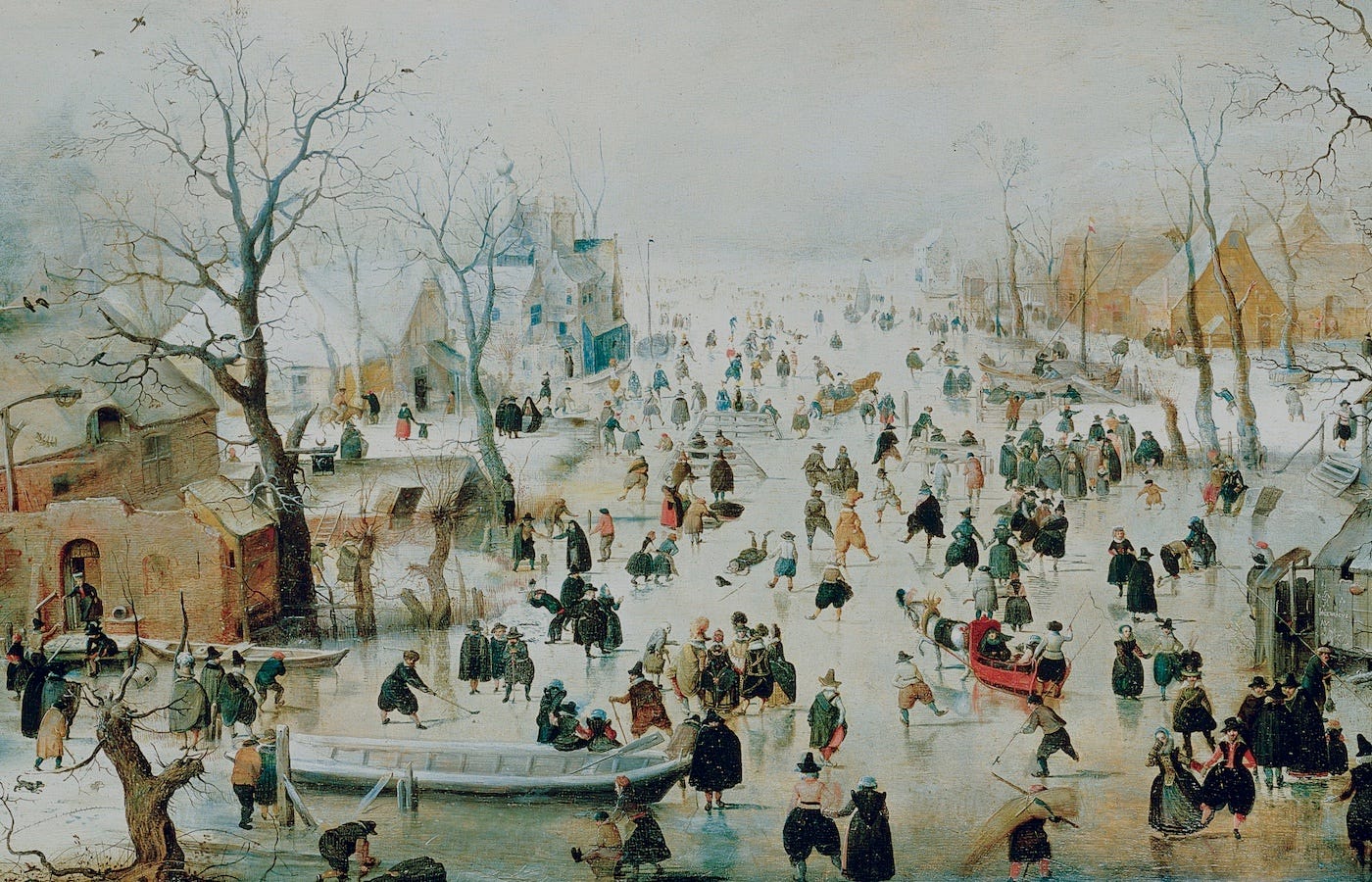Things to argue about over the holidays instead of politics
Report back on how it goes
Is the existence of the Guinness World Records a positive or a negative for humanity on net?
Bragging about material possessions is low-status in much of the West, forcing people to jostle through subtle wealth cues (travel, education, hobbies, food). But then why isn’t there another level where people embrace explicit materialism again to show that they are above such things? (Or is there, and it’s just invisible to me?)
Say that if everyone voluntarily waited a bit longer to reproduce then after a hundred generations human life expectancy would increase by 25 years (edit: by providing selection pressure for genes that code for longevity, nothing to do with parenting). Would we be morally obligated to do that?
Do we focus too much on classic books/music/movies/plays/art/ideas, or too little?
Those lists of regrets people make at the end of life—how seriously should we take them? Profound wisdom or just how one version of yourself feels on one day?
Generally speaking, is human progress more limited by our ability to build/orchestrate (1) technological systems or (2) social systems?
What should we take from the existence of acquired tastes like spicy food or whiskey? Are they “fake”? Why aren’t we more intentional about which ones we acquire?
If you take an octopus with most of its neurons in its arms and you cut one of the arms off and wait three months for it to regrow, what happened to the memories in those neurons? Did you destroy arm-specific memories or make all memories vaguer or is there some redundant coding scheme where the memories will be re-cached as the arm regrows? (Considered unsporting to use the scientific literature that no doubt exists in your argument although please send it to me.)
Does all the excitement about GLP-1 agonists imply that the gastric bypass is underrated?
Take this 2x2 matrix:
Why does the upper-left corner exist?
Is there any way to opt out of the signaling/counter-signaling game? If you could do it, should you, or is that pointless neuroticism?
Is what we call “meaning in life” really just feeling respected and liked and important?
Is utility one-dimensional? That is, is there just one kind of goodness/badness in subjective experience that comes mixed with neutral flavors, or can you feel immense pain and pleasure at the same time?
How many attractors does the utility function landscape have? Like, say you are an AI and you can reprogram yourself at will with any CIRCUMSTANCE→REWARD mapping. Depending on the mapping, you may or may not decide to change your mapping again. Where do you stop? Are the attractors always “good” ones, or might you end up miserable but dead-set against changing?
Mendel was only appreciated when his results were found independently decades later. So did he really achieve anything? Should we celebrate Mendel less and Carl Correns more?
Is there a qualitative difference between drugs and music/games/video services? How addictive would a game have to be that we’d throw people in jail for making it?
Why do most people seem to hold poetry and poets in high esteem yet have approximately zero interest in reading any poetry ever?
Do some cultures come up with food traditions that are objectively better than others, and since yes, why?
How is it that 100 years after zippers were invented, the high-end zipper market is almost completely controlled by a single company?
Were earlier generations tougher than us? If so, what’s the best level of toughness? It’s unlikely that it’s where we are now, right?
Say some crazy internet people do a non-randomized non-blinded trial where some other internet people self-select to try some diet and they (the latter group) report losing a massive amount of weight—how much does this change your opinion relative to a traditional RCT where people lose 0.1% of body mass with p<.001?
If you accept that agriculture initially made life worse but hunter-gatherers had to adopt it or be vanquished, then are we going through any similar changes now?
Of all the people who try newfangled note-taking systems like Zettelkasten or org-mode or Roam or Obsidian or Logseq, what fraction really end up getting more value out of them than they put in?
Why does the West insist on “authenticity” in popular music where the performers are the songwriters? Why not specialize? Or why not insist the artist masters the music and creates the album art? Does this tradition give Western musicians more bargaining power than, say, K-pop artists?
If people truly understood the sacrifices that are necessary to win the Tour de France (even ignoring drugs) would that increase or decrease how much they enjoy watching it?
Why is pie so much better than cake and given that it is why do people continue to eat cake?
There seems to be a core concept of a (non-religious) “Christmas spirit”, but what is it exactly? Family? Love? Giving? Appreciation? Togetherness?
Whatever the Christmas spirit is, it seems pretty nonmaterialistic. So how is it that Christmas is simultaneously a colossal festival of consumption?
Why is Christmas such a uniquely successful cultural export?
Christmas is (at least partly) about togetherness and there’s strong evidence that togetherness makes us happier, so why are we less together than ever?




Point 30 is a direct response to point 22 😅
I hazarded at least a possible answer to your question about pie vs. cake a few years ago: https://www.washingtonpost.com/opinions/2021/07/01/america-forgot-how-to-make-pie-crust/